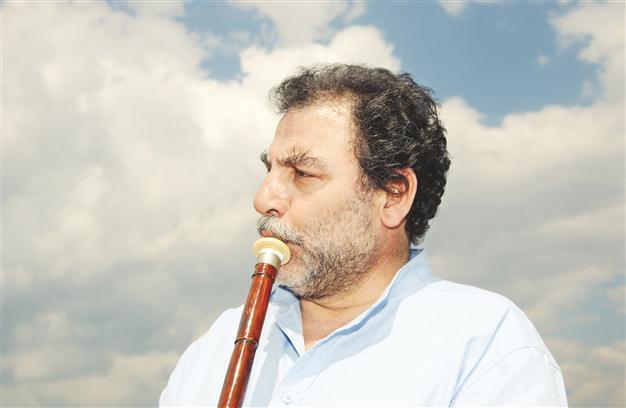Reed flute master celebrates 40th year
PARIS - Anatolia News Agency

Turkey’s well-known reed flute player Kudsi Ergüner is considered a master of traditional Mevlevi Sufi music. He celebrated the 40th year of his art in Paris. Hürriyet photo
Turkish reed flute player and musicologist Kudsi Ergüner’s 60th birthday and the 40th anniversary of his collaboration with UNESCO was celebrated on Feb. 5 at a ceremony held at UNESCO’s Turkey center in Paris. The event was attended by Ergüner’s artist friends from other countries and students.
Speeches at the reception highlighted Ergüner’s contribution to intercultural dialogue and tolerance thanks to his following the traces of Rumi traditions.
The ceremony also featured a surprise reed flute concert performed by his son Selman Ergüner and his students as well as a short film screening. Ergüner’s father, reed flute player Ulvi Ergüner, was also commemorated at the ceremony. Ergüner gave a concert with Canadian double bass artist Chris Jennings at the end of the ceremony.
Born in 1952 in the eastern province of Diyarbakır, Ergüner is considered a master of traditional Mevlevi Sufi music and one of the best-known reed flute players. His musical career started in Istanbul Radio in 1969. For several decades, he has researched the earliest roots of Ottoman music which he has also taught, performed and recorded.
He has so far worked with world famous musicians such as Peter Gabriel, Jean Michel Jarre, Jordi Savall, Nusraet Ali Han, Georges Apherghis, Didier Lockwood, Michel Portal, Christof Lauer, Michel Godard, Markus Stokhausen, Fazıl Say and Maria Farantouri. He has also worked for various theater, cinema and concert projects.
Founded Rumi InstituteIn 1970s, Ergüner moved to Paris, where he founded the Rumi Institute, and devoted his life to the study and teaching of classical Sufi music. Together with the Kudsi Erguner Ensemble, he developed deep insights into the diversity of his culture. The group conveys both authentic, often improvised forms of expression of classical Ottoman performance culture as well as a comprehensive repertoire of modern and classical pieces that can be traced back to the 13th century. He also worked as the producer of UNESCO’s traditional Turkish music albums.
